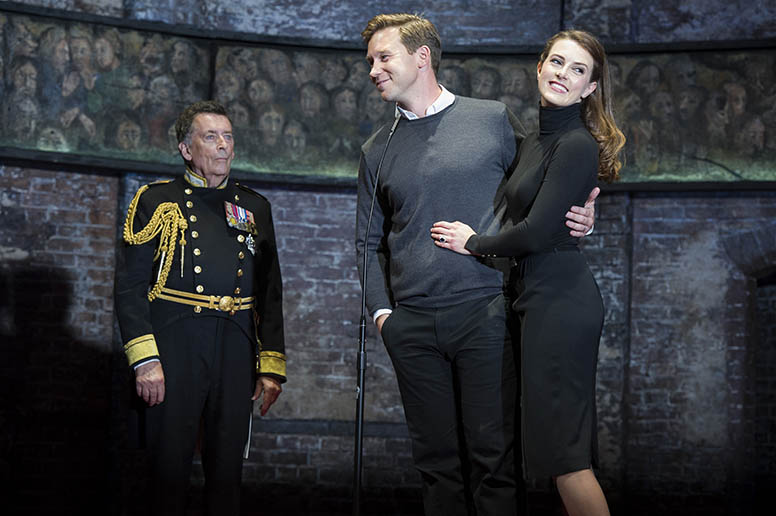Hailed as hilarious and intriguing, audacious yet affectionate, King Charles III opened to fanfares of praise in London last year. Now, after a sell-out West End run, award-winning director Rupert Goold’s production embarks on a national tour, starring Robert Powell.
Written in blank verse – like a 21st-century answer to Shakespeare’s history plays, but with droll modern phrases in the mix – King Charles III imagines what might happen in the near future, were Prince Charles to ascend the throne and be asked, by his prime minister, to assent to a privacy bill restricting the freedom of the press. In this scenario (which also features Camilla, a troubled Prince Harry, William and Kate) a tense moral dilemma ensues, raising questions about Parliament’s powers, the monarch’s prerogatives and how Britain is governed.
Robert Powell shares his thoughts on playing the future king.
Q: What, in particular, drew you to the play, King Charles III?
A: I think Mike has written a quite brilliant drama, brilliantly constructed and very funny as well. It’s totally of the moment, and is actually becoming more and more current with this whole issue of the freedom of the press. What I love is that Mike chooses a bill limiting press freedom as the bill that Charles won’t sign – which is the opposite of what everyone might assume, thinking he’d be delighted if the press were shackled!
Q: Is a modern-day verse drama also an exhilarating challenge?
A: It’s a massive learn! Improvising isn’t an option because it’s in iambic pentameters. But that’s great… Last year, after I’d toured as Poirot in Agatha Christie’s Black Coffee, I was offered half a dozen plays, but they wouldn’t have tested any part of me as this one does. King Charles III also has the major advantage of being a new play.
Q: The play includes occasional echoes of Hamlet as well as King Lear, and you’re no stranger to Shakespeare…
A: Yes, I played Hamlet at Leeds around 1971. And I played King Lear when I was still at school – at Manchester Grammar.
Q: You weren’t from a theatrical family, but did any contemporaries at school go on to become actors?
A: My father was a mechanical engineer from Salford… On my very first day at Manchester Grammar, the desks were in twos and I was paired up with Ben Kingsley (called Krishna Banji then). After school, I’d started to read Law but was doing a play with the Manchester University Stage Society when the Head of Drama came backstage and said, “What on earth are you doing reading Law?”
I jacked in studying Law but then had a year to kill (because, bizarrely, I had to take ‘O’ Level English Literature to qualify for the Drama course). During that year the director of Stoke’s theatre-in-the-round, Peter Cheeseman, asked me to join his company. About six months in, we were doing As You Like It, and into the first day of rehearsal walked Ben Kingsley! In any case, I never took up that place at Manchester.
Q: Would you say that playing Bartlett’s Charles involves far more than just an imitation?
A: I can do rather a good imitation, and there may be certain little habits such as playing with the lobe of the ear. But, as Rupert [Goold] says, an impersonation would be completely distracting. Once you’ve established that you’re not doing that, the audience can get fully involved in the character and your energy goes into bringing that to life.
Q: Have you ever met Prince Charles?
A: Yes. He is utterly charming and Camilla is divinely funny.
King Charles III is at Cambridge Arts Theatre, 19-24 October, 7.45pm. Tickets from £15.

